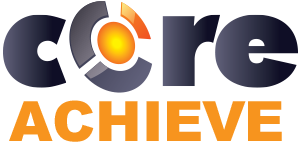Combating Cognitive Overload
December, 06 2022
Other posts:
Enhancing Team Dynamics for Effective Group Decision-Making with LMS Integration
Organizations increasingly rely on collaborative efforts to solve complex problems, innovate, and adapt to change, but how do we ensure that collaboration is happening.
Maximizing Small Business Potential with Training Technology
Training technologies can push small businesses ahead of their competitors, but what are the factors that go into choosing the right technology?
Unlocking Employee Potential: The Transformative Benefits of an Interactive Learning Management System (LMS)
Interactive training allows for unlocking employee potential, but how is it done?
Building a Robust Sales Pipeline with Training
Every organization wants a streamlined sales pipeline, but building one requires a series of interlocking activities with one of the most important being training.
Strategies for Adapting In-Person Training to Online Platforms
Online training is one of the most flexible ways of delivering training across organizations, but how do you even begin to adapt in-person training into online?
Do you ever feel like your brain can't handle anymore information? It probably can't. Cognitive overload can affect one's mood, learning, and physical health. How do we avoid it?
What is Cognitive Overload?
Cognitive overload, as described by John Sweller in 1988, claims that the brain can only hold so much information in working memory. Much more practical, however, is its impact on learning. Sweller recommends that cognitive overload is reduced as much as possible because it has a negative impact on one’s learning abilities (along with negative impacts on mental, emotional, and physical health).
Different Types of Cognitive Load
There are three types of cognitive load that all stem from different places but have a similar destructive impact. To make sure one is instructing to the best of their ability, they must consider the three versions of load that can lead to overload.
Intrinsic Cognitive Load
Intrinsic cognitive overload refers to the inherent (or intrinsic) difficultly of the learning content. Most of us will have experienced this, like needing to mill-over a difficult theory in school before understanding it. This, of course, can be exacerbated by the style of instruction, but it is cognitive overload via complex information.
Germane Load
Germane load is related to how we digest the information. Essentially, whenever learning, we process the information similarly to how we’ve experienced it before. Germane load is the strain put on the mind by needing to create a new model of how to understand this information.
Extraneous Load
External factors are the major drivers of extraneous load, as it refers to the brain power needed from a learning experience being made too complex or difficult from things beyond the content or the previous experience with similar content.
Avoiding Cognitive Overload
The task of avoiding cognitive overload more difficult whenever distance learning, but there are still things that can be implemented or encouraged.
Take It Easy on The Content
One of the biggest problems with delivering learning content is the drive to get it over with as soon as possible. While it may be time efficient, it’ll often overload the learner—causing them to tune out the rest of the information. If the instruction can only be done within a given frame, then make sure that the learner only focus on the current task.
Cut Out Unnecessary Content
Like moving too fast, including learning content that does not directly affect the goals of the course will cause an overload. The learner will not only spend power attempting to learner everything, but it will also be spent on trying to parse what is useful.
Include Elements from Previous Knowledge
Intrinsic load is most often overwhelming whenever all the information presented is new. Therefore, instead of separating content into their own boxes, one should include previous information into the following course to ease intrinsic load.
Limit (or Encourage Limiting) Distractions
While an instructor cannot have direct control over the distractions that a learner often has within one foot of them at home, they can encourage eliminating distractions by instructing learners to set aside specific times for learning and by offering incentives for those who stick to that routine.
Have Learners Link New Content to Old
The connection between new and old information is essential to the learning process and helps reduce germane load. By making those connections, learners will often understand the new information in the way that they did the older information. Information stacks on-top of each other to get a more thorough understanding.
Immediate and Long-Term Solutions
Immediate is Relative
The immediate solutions for cognitive overload would be to dissect the learning content to see if it follows the (general) outline above. Yet, this will still take some time handle completely, especially if the learning content is coming from an outside provider. Reducing the amount of cognitive overlord is a noble goal, especially whenever one considers the impact it can have beyond affecting learning.
Investing into the Long-Term
Knowledge of a problem is the first step to fixing it; however, many learners have no idea of cognitive overload. Most, if they’re particularly introspective, can acknowledge whenever they feel it happening to them, but they may not know the how are the why. That’s where our potential instructor helps them. By instructing learners of the challenges they may face and how they come about, learners are enabled to decide the best action for themselves.

Leave comment: